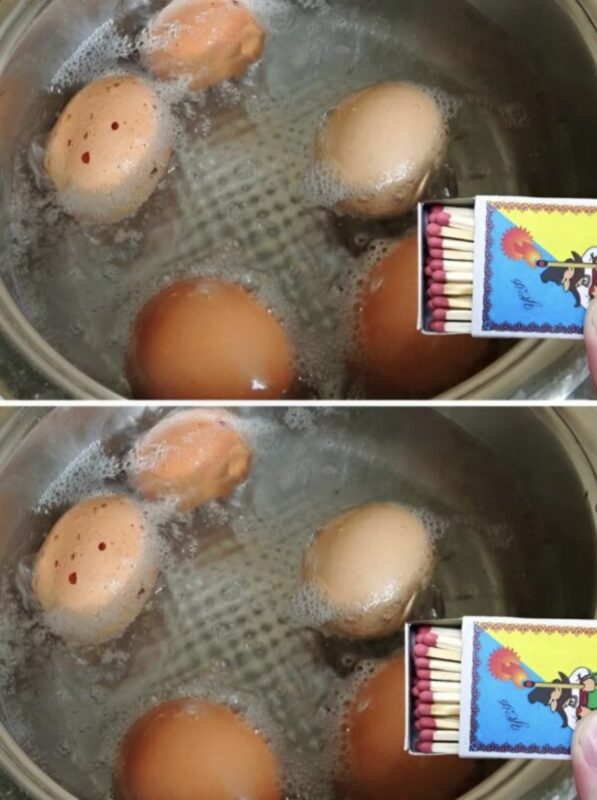
Boiling eggs might seem like a straightforward task, but anyone who has encountered the disheartening sight of cracked shells knows that it’s not always as simple as it appears. The cracking can result in jagged, uneven shells and egg whites leaking into the water, which not only affects the egg’s appearance but potentially its texture and flavor as well. Thankfully, there are several effective techniques to ensure your eggs come out perfectly boiled without any unsightly cracks.
One of the most original and surprisingly effective methods is the Matchstick Method. It may sound a bit unconventional, but it’s a tip worth trying if you find yourself struggling with cracked eggs. The idea is to add a few matchsticks (with the sulfur tips removed, of course) to the water. Just four to five matchsticks will suffice. As the water heats up, the wood releases certain compounds that help strengthen the egg shells, making them less likely to crack. It’s a clever and natural way to ensure your eggs remain intact during boiling. And if you don’t have matches on hand, wooden toothpicks work just as well, serving the same purpose of reinforcing the shells. They’re common household items, easy to come by, and the results might pleasantly surprise you.
Beyond matches and toothpicks, there are other tried-and-true methods to prevent those pesky cracks. One of these is adding salt to the boiling water. Incorporating about a teaspoon of salt per liter of water doesn’t just help prevent cracking; it also simplifies the peeling process once the eggs are done. Salt works as a kind of insurance policy for both cooking and post-cooking stages. Plus, who doesn’t love a slightly salty hint left on a perfectly peelable boiled egg?

Then there’s vinegar—an old kitchen standby that works wonders in many culinary scenarios. If your eggs are already slightly cracked, adding vinegar to the cooking water can make a world of difference. Vinegar helps coagulate any leaking egg white, preventing it from further spilling out into the water. This keeps things tidy and makes the cracked egg more presentable. It’s also handy to have around for cleaning and cooking, so you likely have a bottle in your cabinet already.
Temperature control is another crucial factor when boiling eggs. A drastic temperature change is often what causes eggshells to crack, so it’s wise to manage this carefully. Before you start boiling, take the eggs out of the fridge in advance and let them sit at room temperature. Alternatively, you can soak them in warm water for a minute. This reduces the temperature shock when they hit the boiling water, thereby minimizing the risk of cracking.
Once your eggs are boiled, you can ensure they’re easy to peel by quickly cooling them off with an ice bath. Immersing them in ice-cold water as soon as they’re finished boiling not only halts the cooking process, ensuring you don’t overcook them, but it also firms up the egg whites and helps with easy peeling. This step is wonderfully satisfying and ensures the egg interiors remain tender, perfect for salads or snacks.
Now equipped with these tips and tricks, you’re ready to face your next egg-boiling venture with confidence. Whether you’re preparing a dozen eggs for the week’s breakfasts, crafting the perfect deviled eggs for a gathering, or simply enjoying a quick snack, these techniques should help you avoid cracks and achieve a flawless finish. Go ahead and experiment with these methods—find what works best for your kitchen, and enjoy perfectly boiled eggs in all your favorite dishes!



